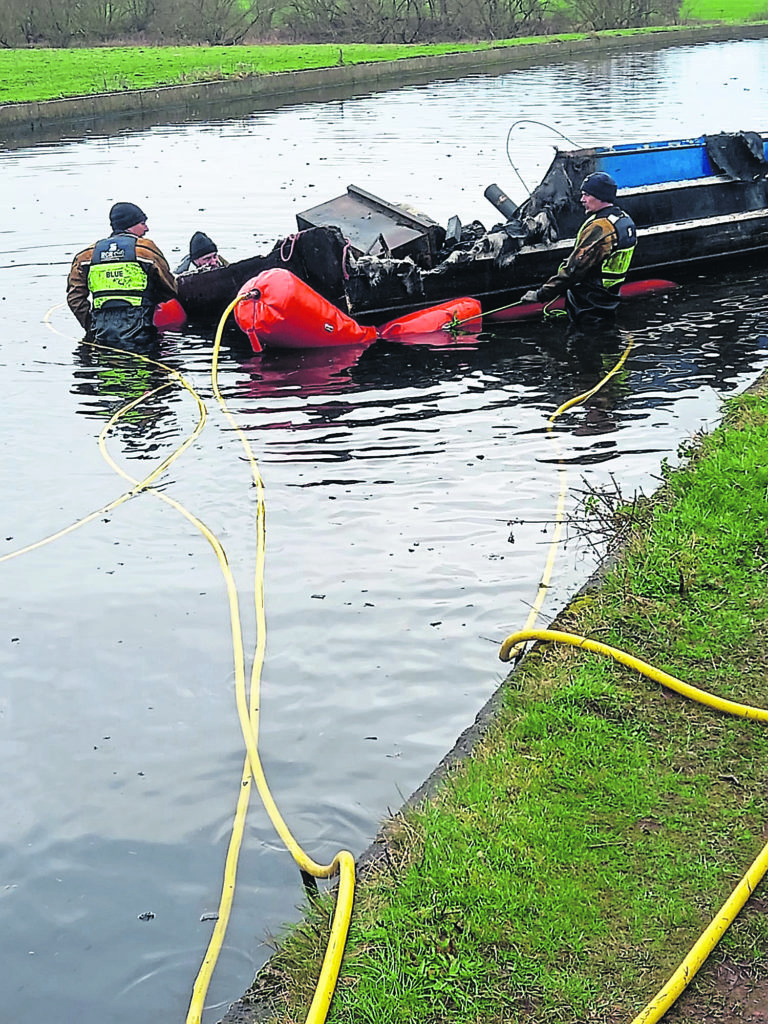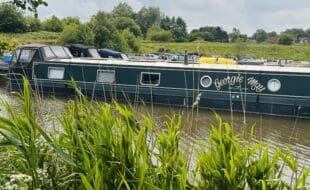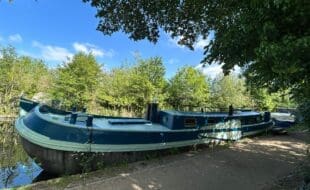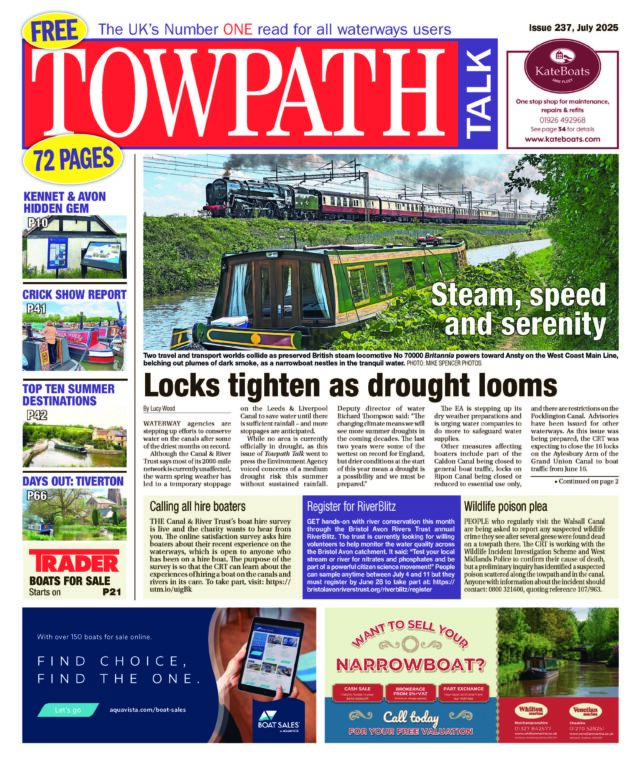RIVER Canal Rescue is calling upon boaters to be aware of the fire risks on their vessels, after finding more and more cases of poor electrical wiring, including under-sized wiring, overloaded circuits, and sub-standard connections and cable routing, which can rapidly turn into a loom meltdown or a fire.

Managing director Stephanie Horton says with BSS certification failing many boaters, RCR is having to report regularly on boats that are dangerous or at risk.
She commented: “By undertaking the following checks and actions, you can hopefully reduce the likelihood of a fire occurring.”
· If you are leaving your vessel for a period of time, it’s important to isolate the batteries and disconnect your shore power if you have it. If leaving your shore power connected in order to charge your batteries, check the connections to the battery are secure, isolate them and set the charger to ‘trickle’ charge.
· Inspect your shore power cable for any loose connections or wires and ensure the cable is routed properly so if water levels change or the wind picks up, it’s not too tight, or equally loose so that it dangles in the water.
· Never leave fires on or stoves unattended when you leave the boat. If you have no choice, then remove items near the fire, clear the area of anything that could get ‘hot’ and keep your time away from the boat to a minimum. Last year one boater nipped to the shops and a hot coal escaped from his stove; the boat was gone before he returned. It’s worth noting insurers can refuse to cover these incidents.
· One of the biggest issues is circuit overload and the failure of undersized cables, causing a short circuit which can quickly develop and cause a fire. Always investigate spurious ‘trips’ or loss of power to the boat as this could be an indication a fault is developing. It’s easy to ignore these and simply reset circuit breakers or replace fuses, but these protection devices rarely ‘trip’ without cause.
· Where possible, ensure 12V cables are routed separately to 240V systems. If cables are hot this is a clear indication of an overload or undersized cable – do not ignore it.
Stephanie concluded: “If you are concerned over the certification you have received, you can report it directly to the BSS at www.boatsafetyscheme.org.”
#firesaftey #rivercanalrescue #towpathtalk #canals #canalsandrivers #narrowboat #rivers #waterways #lifeonthecut #boating #boats #canallife #canallifeuk





